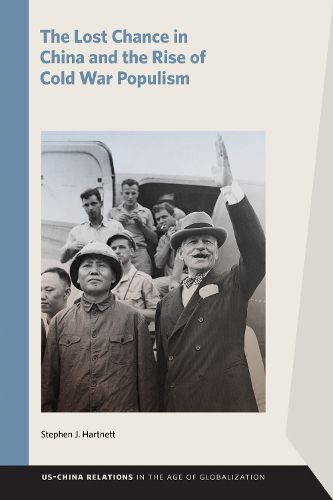Readings Newsletter
Become a Readings Member to make your shopping experience even easier.
Sign in or sign up for free!
You’re not far away from qualifying for FREE standard shipping within Australia
You’ve qualified for FREE standard shipping within Australia
The cart is loading…






The Lost Chance in China and the Rise of Cold War Populism offers a rollicking retelling of the fate of America's diplomats stationed in China during World War II and the start of the Chinese Civil War, documenting how their efforts to find peace in China clashed with the anti-Communist network of right-wing advocates known as the China Lobby. Fueled by America's end-of-the-war fury over the loss of China to Mao and the Communists, the on-the-ground experts in Asia lost the public relations battle to Cold War populists, who pushed a toxic version of public anger that built the rhetorical foundation of McCarthyism. Hartnett diagnoses the moment's political battles by mapping a series of interlocking dispositions, emotion-based reactions that short-circuited critical thinking and empathy, instead feeding strident anti-Communism, xenophobia, and class-based resentments. Hartnett's masterwork offers a haunting prehistory to our contemporary moment, when populism again stokes outrage and fear at the cost of nuanced international understanding.
$9.00 standard shipping within Australia
FREE standard shipping within Australia for orders over $100.00
Express & International shipping calculated at checkout
The Lost Chance in China and the Rise of Cold War Populism offers a rollicking retelling of the fate of America's diplomats stationed in China during World War II and the start of the Chinese Civil War, documenting how their efforts to find peace in China clashed with the anti-Communist network of right-wing advocates known as the China Lobby. Fueled by America's end-of-the-war fury over the loss of China to Mao and the Communists, the on-the-ground experts in Asia lost the public relations battle to Cold War populists, who pushed a toxic version of public anger that built the rhetorical foundation of McCarthyism. Hartnett diagnoses the moment's political battles by mapping a series of interlocking dispositions, emotion-based reactions that short-circuited critical thinking and empathy, instead feeding strident anti-Communism, xenophobia, and class-based resentments. Hartnett's masterwork offers a haunting prehistory to our contemporary moment, when populism again stokes outrage and fear at the cost of nuanced international understanding.